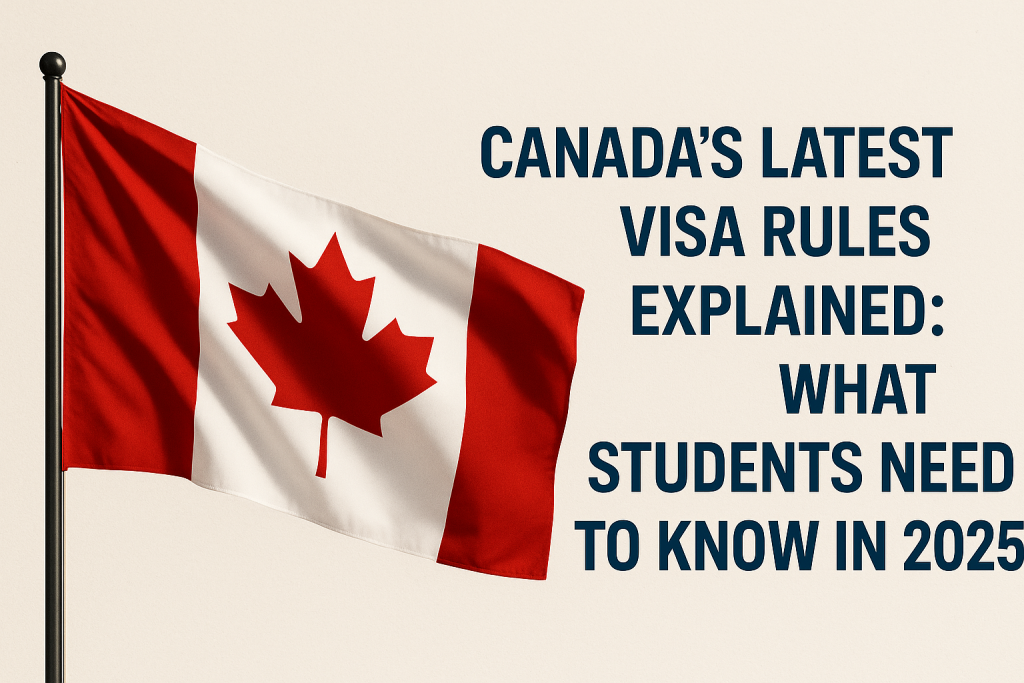Canada continues to attract thousands of international students each year with its high-quality education system, multicultural environment, and strong post-graduation opportunities. However, in 2025, several new rules and policy changes have been introduced that students and education agents must be aware of. Here’s a breakdown of the most important updates and what they mean for aspiring students.
1. Cap on Study Permits
In an effort to manage the increasing number of international students, the Canadian government has introduced a national cap on the number of study permits issued annually.
What It Means: Students are advised to apply as early as possible to avoid missing out, and agents must manage application timelines more proactively.
2. Stricter Designated Learning Institution (DLI) Requirements
Only students accepted by DLIs with enhanced verification standards are eligible for a study permit.
What It Means: Ensure that students are applying to verified institutions. Agents must stay informed about updated DLI listings.
3. Financial Requirements Increased
Applicants must now demonstrate a higher minimum amount of funds to cover tuition and living expenses.
What It Means: Students must be better prepared financially, and documentation must be thorough and accurate.
4. Post-Graduation Work Permit (PGWP) Changes
There have been changes to eligibility criteria and program lengths for PGWP.
What It Means: Students should understand which programs offer PGWP eligibility before applying, especially for shorter courses.
5. Province-Led Application Quotas
Some provinces are introducing their own quotas or additional requirements to better manage international student intake.
What It Means: Admission opportunities may vary by province, so agents should help students identify locations that align with their goals and capacity.
6. Faster Processing for French-Speaking Applicants
To promote bilingualism and attract diversity, French-speaking students may benefit from accelerated visa processing.
What It Means: This creates new opportunities for students willing to study in French or bilingual regions like Quebec.
Final Thoughts
Canada remains a top destination for international education, but evolving immigration policies mean that education agents must stay proactive and well-informed. By understanding these 2025 changes, agents can better support students in making successful applications and informed study choices.
